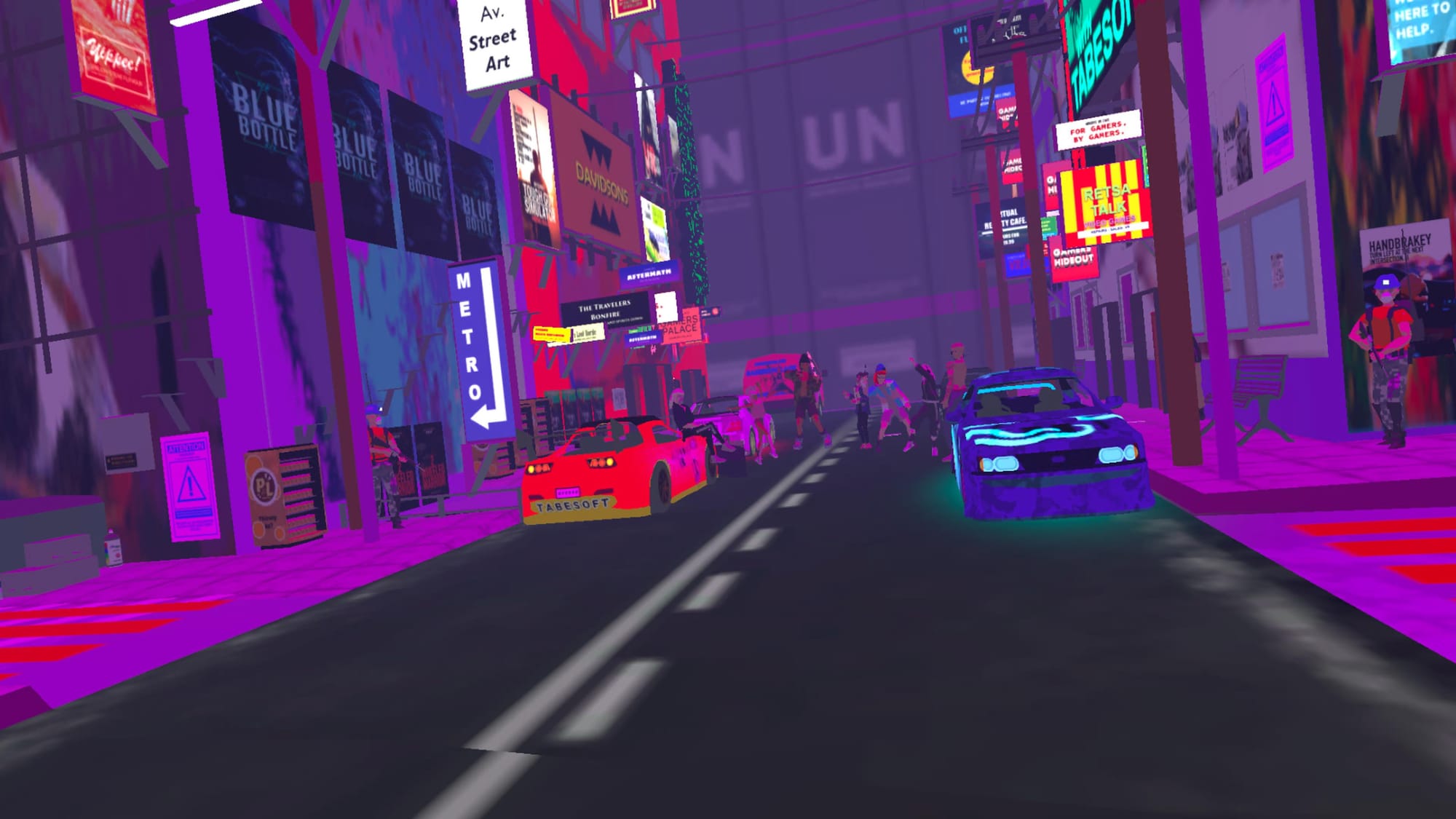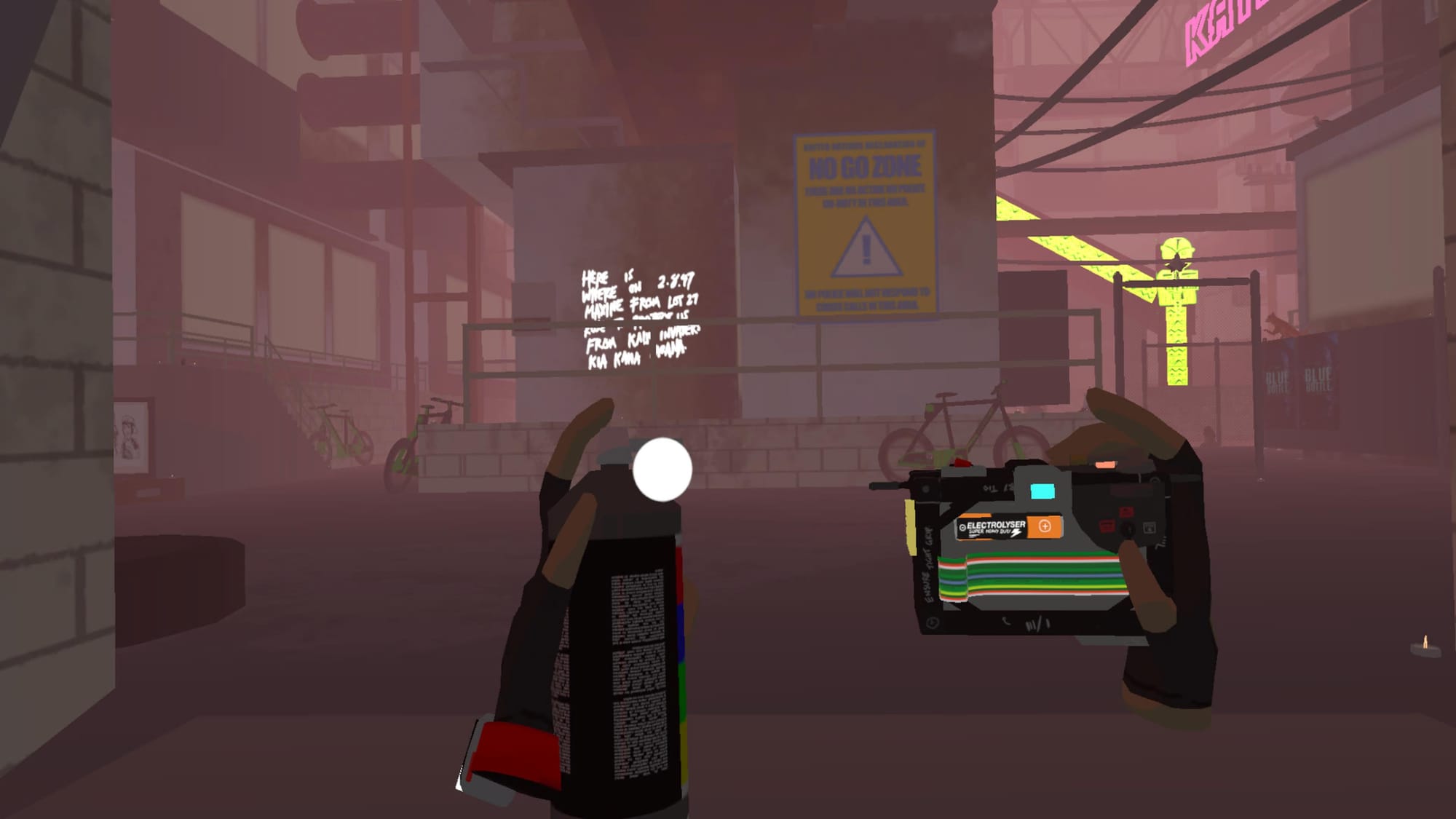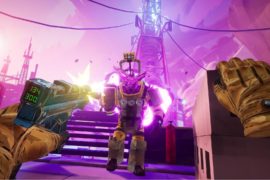Umurangi Generation VR offers a compelling post-apocalyptic photography sim that shines in its environmental storytelling. Read on for our full thoughts:
What would you do if the world was ending all around you? I don’t think anyone can truly answer that. The more realistic outcome doesn’t bear thinking about, though it’s a hypothetical question you’ve probably contemplated at least once or twice, maybe imagining yourself as the hero of some unlikely tale that ultimately overcomes the odds. Umurangi Generation VR takes a different approach.
Developed by Origame Digital, Umurangi Generation is a post-apocalyptic sandbox photography sim that launched for flatscreen platforms in 2020. Influenced by Māori culture and Neon Genesis Evangelion, it transports you to Tauranga, Aotearoa. We find the world recently attacked by alien invaders as the United Nations rallies soldiers to resist this kaiju-sized threat.
Your job isn’t to fix this insurmountable problem. As a courier, each mission involves taking photos that meet some oddly specific criteria. For example, one photo might require capturing ten solar panels, while another may require four tires and two boomboxes with a particular lens. Bonus objectives extend this further, like snapping a group photo of your friends.
Better-quality shots earn more money, and once you’ve cleared every objective, you can send the package off and move on to your next mission. However, I sometimes found the game didn’t register when I completed an objective. On one occasion, I couldn’t clear an objective that mentioned snapping the word ‘Cops’ in a shot after ten attempts, though moving to a different graffitied message with that word instantly registered.
Handling your camera feels perfectly adapted for motion controls, though the minor platforming during exploration remains rather janky. I also appreciate how Umurangi Generation VR lets you get creative by adjusting the photo’s exposure, color balance, contrast, and more. Some settings and camera lenses unlock as you progress through the main story, creating a nice incentive to replay those missions again, and there’s no limit on how many photos you can take.

This isn’t a story told through cutscenes or a more traditional narrative. Umurangi Generation VR relies exclusively on environmental storytelling that gradually becomes more explicit. Whether that’s NPCs gathered around a memorial, graffitied UN recruitment posters, or the level set entirely on an evacuation train, it’s a relevant reflection on the modern world that remains compelling four years on.
Umurangi Generation VR effectively conveys a sense of hopelessness that many of us feel, the thought that our situations won’t ever improve no matter what we do. The game doesn’t pretend to offer solutions for these problems but it does arm you with a spray can for optional graffiti, letting you creatively express your frustrations and leave your mark. Combined with the unambiguous political messaging, there’s defiant tone that immediately resonated with me.
I recently said that VR can further enhance flatscreen games, which rings true again with Umurangi Generation. The environmental storytelling approach plays to VR’s immersive strengths, and traveling through Aotearoa feels even more impactful in a headset, even with the game’s strong but low-poly visual presentation.

There’s a good range of comfort settings, too. Umurangi Generation VR supports artificial stick-based locomotion and teleportation movement. Snap and smooth camera turning are present with adjustable angles and speed. Vignettes are also available and you can adjust your movement speed. Even with minimal comfort settings, I found this world easy to explore.
It’s a relatively short game; the main campaign only takes 2-3 hours to complete, though the VR version bundles in the Macro DLC levels to extend this further. However, Umurangi Generation VR quickly makes its mark with a compelling story. Four years later, it’s themes feel even more impactful thanks to VR and I’d consider this the definitive way to play.
Umurangi Generation VR is out now on the Meta Quest platform and PlayStation VR2 for $24.99.





